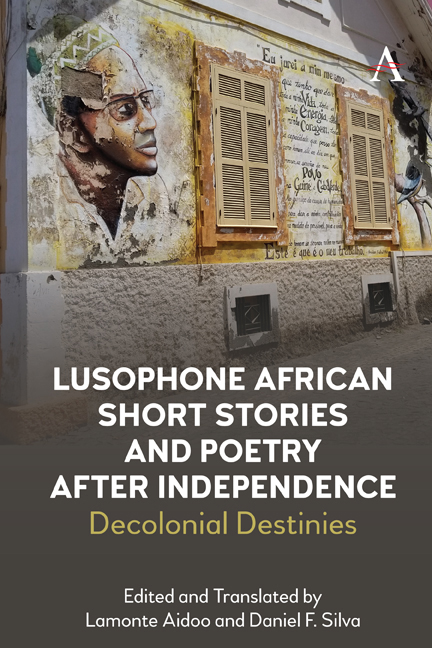Chapter 2 - Ana Paula Tavares
Published online by Cambridge University Press: 23 February 2022
Summary
Introduction
Born on October 30, 1952, in Lubango, Huíla province, to a Portuguese-Angolan family, Ana Paula Ribeiro Tavares resided in Huambo, Kwanza Sul, and Benguela before finally settling in Luanda. After independence, like many other cultural and political figures of Portuguese lineage that supported decolonization, she held governmental positions in the postcolonial state of the Movimento Popular de Libertação de Angola (People's Movement for the Liberation of Angola, MPLA), namely, as a member of the National Council on Culture. She later studied in Lisbon, completing a doctorate in anthropology from the New University of Lisbon, and currently lectures at the Catholic University of Lisbon.
Her first published literary work was a collection of poetry, Ritos de Passagem (Rites of Passage, 1985), of which three poems are included here. In an aesthetic departure from many of her literary contemporaries, the collection moves away from an explicit nationalist paradigm, and is less focused on nation-building than on signifying women's experiences and problematizing monolithic tropes of gendered lands—that is, Mother Africa, and gendered dichotomous orders of society. As the eminent scholar of Lusophone African literatures Inocência Mata notes, whether intentional or not, Tavares's first collection intervenes in a national literary landscape that looked to
represent the nation, and often a black/ African diaspora (as in the poetry of the Negritude movement), through images of feminine immanence (mother, sister, lover, caretaker, prostitute, washer; torso, breasts, lips, hands, milk, womb, hips, gait, smile, gestures, kisses, caresses) and its subjects. The figure of woman served, therefore, as a central element in a poetry of constant revolt, through which the poetic subject would reflect on the anguishes stemming from all types of precarity (“Under the Sign”, 76).
After a 13-year hiatus Tavares then published, Sangue da buganvília (Blood of the Bougainvillea 1998), a book of crónicas—short writings about daily or political topics that often appear in magazine or newspaper columns. The following year, she published her second collection of poetry, O Lago da lua (The Moon's Lake, 1999). Mata's understanding of Tavares's first collection of poetry also rings true for her second, though, as evidenced in one of its poems included below, her second poetic project also brings forth allegorical and metaphoric renderings of colonial history.
- Type
- Chapter
- Information
- Lusophone African Short Stories and Poetry after IndependenceDecolonial Destinies, pp. 47 - 58Publisher: Anthem PressPrint publication year: 2021

